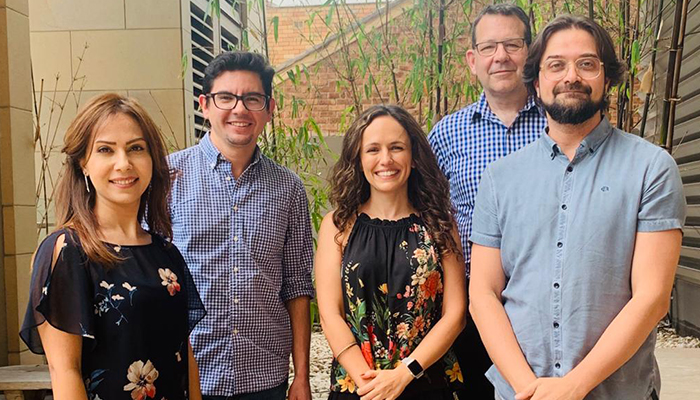Researchers at the Australian Institute of Health Innovation (AIHI) at Macquarie University are competing against big tech players, including Google, Amazon and Microsoft, to develop a prototype digital scribe for doctors.

Private practice: Very few doctors record consultations with patients, making it difficult for the researchers to collect enough data, says Quiroz.
The tool will use speech recognition and artificial intelligence (AI) to record and transcribe consultations, extract relevant information and summarise it in a patient’s electronic health record.
This would allow doctors to focus on the patient, with the digital scribe generating the appropriate notes. But no one has yet been able to obtain the quantity and quality of data they need to accurately develop the tool.
The benefits of the new tool would be significant for doctors worldwide. Previous research shows that doctors spend half their day documenting patient interactions. It can lead to distraction, cognitive overload and burnout.
We need recordings of tens of thousands of conversations between patients and doctors so the AI can learn patterns from the data.
“Reducing the time and effort doctors invest in documentation could decrease their burnout, increase their productivity and improve the quality of their relationships and care of their patients,” says Dr Juan Quiroz, an AIHI research fellow and machine-learning expert.
Quiroz is part of a team of five researchers led by Professor Enrico Coiera, developing Macquarie’s digital scribe. The team conducted a successful pilot study using recordings from about 40 consultations from clinicians and patients at Macquarie University Hospital to understand the nature and flow of medical conversations.

The AIHI digital scribe team: Pictured (L-R) is Post-doctoral Research Fellow Dr Dana Rezazadegan, Research Fellow Dr Juan Quiroz, Research Fellow Dr Liliana Laranjo, Director of Centre for Health Informatics Professor Enrico Coiera and Research Fellow Dr Baki Kocaballi.
“The problem is that AI technology needs so much data and this is extremely hard to come by,” Quiroz says. “We need recordings of tens of thousands of conversations between patients and doctors so the AI can learn patterns from the data.”
“Doctors and clinicians rarely record their consultations,” he says. Asking them to do this is yet another imposition and pressure on a professional already under stress from multiple demands on their time. It also raises data privacy issues.
Call for cooperation
So, to share their challenges and reach out to other researchers in universities and industry in the same field globally so they can tackle them cooperatively, Quiroz and his team have just published a paper in Digital Medicine.
One of the main problems is that the quality of AI transcription of conversations with multiple speakers is currently low. “There is already dictation software when a microphone picks up the voice of a single speaker but AI transcription still has really poor accuracy with two speakers,” Quiroz says.
Machine-learning still struggles to differentiate between different pronunciation, accents, to filter out background noise, and between multiple speakers (who said what).

Improving services: Digital scribes will allow doctors more time to focus on the patient rather than taking notes, says Quiroz.
Many doctors’ consultations are not structured and venture into many areas such as allergies, family histories, drug histories and often include physical examinations.
“This complex doctor-patient exchange can be quite spontaneous and hard to predict,” Quiroz says. “From an AI perspective, this makes it really hard to draw a summary from this interaction.”
- How surgeons are transforming lives through low-cost operations
- What exactly is a hangover and can they be cured?
Quiroz hopes by publishing this paper and outlining the challenges and areas for further research, he will improve global collaboration.
“All tech players working in this space are focused on making technology breakthroughs but more data is needed before that can happen,” Quiroz says. “Data is a valuable intellectual property asset. If we can develop a way to share the necessary data sets so there are more research groups working on this problem and get closer to solving the problem that would be ideal.”
He also stresses that the point of the digital scribe is not to replace doctors and patients interaction altogether.
“No! Our purpose is to make the doctor-patient experience so much better and bring the focus back to patient-centred care and doctor-patient communication.”
Dr Juan Quiroz is a Research Fellow at the Australian Institute of Health Innovation.



